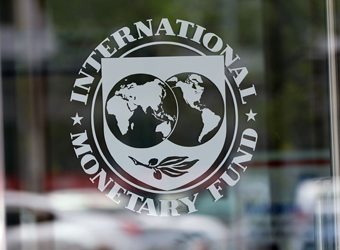The International Monetary Fund (IMF) has released Wednesday in an online conference the staff report and documents related to Egypt’s three-year $12 billion loan agreement.
The online conference took place at 5pm Cairo Time, has revealed the first comprehensive report released by the IMF on the loan agreement with Egypt, which was approved by the Egyptian Cabinet on 11 January, but is yet to be approved by parliament.
On November 11, 2016, the Executive Board of the International Monetary Fund (IMF) approved a three-year extended arrangement under the Extended Fund Facility (EFF) for the
Arab Republic of Egypt for an amount equivalent to SDR 8.597 billion (about US$12 billion, or 422 percent of quota) to support the authorities’ economic reform programme.
The EFF-supported programme will help Egypt restore macroeconomic stability and promote inclusive growth. Policies supported by the programme aim to correct external imbalances and restore competitiveness, place the budget deficit and public debt on a declining path, boost growth and create jobs while protecting vulnerable groups.
The Executive Board’s approval allows for an immediate purchase of SDR 1.970 billion (or about US$2.75 billion). The remaining amount will be phased over the duration of the programme, subject to five reviews.
The programme is fully financed in 2016/17, but additional financing will need to be secured for 2017/18 and 2018/19, the IMF statement said.
With the proposed Fund disbursement schedule, the 2016/17 financing gap narrows to $12.3 billion, for which financing assurances for the first 12-months of the extended arrangement have been secured as follows: $2 billion from the World Bank’s Development Policy Financing ($1 billion was disbursed in early September upon adoption of the VAT law); $0.5 billion from the African Development Bank, $3.2 billion from rolling over loans from Afreximbank, $1 billion from a UAE deposit, $1.35 billion from a repo transaction with international commercial banks, $950 million from the planned issuance of a Eurobond, $2.7 billion from a currency swap with China, $250 million from Germany, $150 million from the U.K. and France each, and $50 million from Japan.
In addition, significant project financing is expected from France and Japan. The financing gaps for 2017/18 and 2018/19 are much smaller, and there are good prospects that they can be covered with multilateral support, rollovers of some maturing liabilities, and little fresh financing.
The authorities’ home-grown programme, supported by the EFF arrangement, will address macroeconomic vulnerabilities and promote inclusive growth and job creation. 
The programme focuses on four key pillars:
(i) a significant policy adjustment including (1) liberalisation of the foreign exchange
system to eliminate forex exchange shortages and encourage investment and
exports; (2) monetary policy aimed at containing inflation; (3) strong fiscal
consolidation to ensure public debt sustainability;
(ii) strengthening social safety nets by increasing spending on food subsidies and cash
transfers;
(iii) far-reaching structural reforms to promote higher and inclusive growth, increasing
employment opportunities for youth and women;
(iv) Fresh external financing to close the financing gaps.
